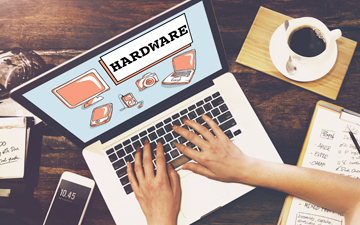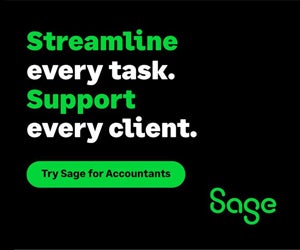Where Canadian accountants are putting their hardware dollars

Sole practitioners, firms outsourcing more of their IT support
TORONTO, December 12, 2019 – Canadian accountants are far more concerned about security, workflow and efficiency than they are about the costs of computer hardware purchases. Technology budgets are increasing and firms don’t mind paying a premium for the peace of mind that comes with brand names. That’s just a few of the key takeaways on computer hardware from the 2019 Accounting and Bookkeeping Operations and Technology Survey conducted by Alan Salmon and K2E Canada.
Technology budgets increasing
Looking to keep abreast of digital transformation, let alone looking to gain an edge on competitors, Canadian practitioners are investing more in technology. More than half of all sole practitioners spend between $1,000 and $5,000 annually. More surprising, perhaps, is that 14.5% of sole practitioners have an annual technology budget of more than $5,000. Almost half (46.7%) of all small firms (2-5 partners) will exceed an annual $5,000 spend, and that number climbs in keeping with the number of partners.
The survey finds a growing shift overall to higher annual technology budgets. Seven per cent more firms (including sole practitioners) have increased their budget in the past year (2018: 16.9%, 2017: 23.7%) to the $2,500 to $5,000 range. A whopping 26 per cent more of the survey’s respondents report raising their budget above $5,000.
Where are sole practitioners and SME Firms spending their money? In terms of hardware alone (we will address software in a future article in this series), firms prefer to spend on brand names and Windows-based systems. The accounting firm market for desktop computers is split fairly evenly between Dell, HP and Lenovo, which together have cornered more than 60 per cent of purchases from Canadian practitioners.
While sole practitioners are more likely to appreciate the convenience of purchasing from Dell, larger firms give the edge to China’s Lenovo, presumably due to price. Acer has a fraction of the accounting desktop market while Apple has none at all. (No one is crunching numbers on a Mac.)
That brand preference includes notebooks and laptops, as Dell, HP and Lenovo dominate, with ASUS and Microsoft running significantly behind. And, while iPads may be popular with the average consumer, they are eschewed by the accounting market. Only two out of 10 accountants in small firms use tablets — and that number has actually gone down since 2018. Most firms simply do not support the use of tablets.
One interesting note is that Canadian accountants prefer to use two or more monitors at their desks. Single monitors are still used by some sole practitioners but rarely in firms of two or more partners. According to the survey, seven out of 10 accountants use two or more monitors at their primary desk, up from 58 per cent the previous year. The vast majority of firms are using Windows 10 and Google Chrome. A few stragglers (13.9% overall) are still using Internet Explorer.
Servers & Security
Second only to workflow and efficiency, security and risk management is cited as the biggest technology issue facing accounting firms today. Yet there are gaps in the average accountant’s knowledge and practice of hardware security.
Nine out of 10 sole practitioners and firms said, however, that they care if a cloud-base service provider that promotes security can access their clients’ sensitive data stored on their servers. Virtually half of all firms report that their cloud-based software provider has its servers in Canada. Moreover, U.S.-based providers use this feature as a selling point.
It is common for Canadian accounting firms, even small ones of two to five partners, to have a server-based network. But don’t ask if the server is virtual or even what kind of service it is — eight out of 10 accountants don’t have the slightest clue. (Presumably they leave that up to their managed IT vendors.)
Roughly half of all firms and sole practitioners use a cloud-based solution for backing up data. Surprisingly, however, half of all sole practitioners are using external hard drives, including USB and flash keys, to back up their files. In terms of remote access, TeamViewer and Windows Remote Desktop are popular solutions, though firms use a host of other solutions.
It’s a real challenge for Canadian accountants to keep pace with the rapidly changing technology sector. With the accounting software market is expected to reach close to $12 billion by 2026, nearly doubling the value of the market in 2017, it is software where accountants are looking for innovative solutions.
Colin Ellis is a contributing editor to Canadian Accountant. Alan Salmon’s annual survey is the best source of data on sole practitioners and small accounting firms and is shared exclusively prior to publication with Canadian Accountant. Download the 2019 Accounting and Bookkeeping Operations and Technology Survey.










(0) Comments